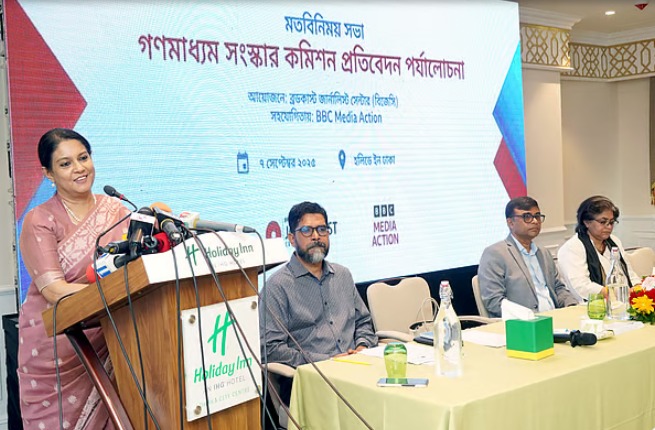Desk REPORT,
The uncertainty is over, but we need to know what concessions we made.
The United States has reduced the countervailing duty on Bangladeshi products from 35 percent to 20 percent. This has reduced the anxiety, worry, and uncertainty that had been created in businessmen, economists, and other conscious circles across the country for several months. The new countervailing duty imposed on Bangladeshi products is equal to or close to that of our competing countries. Although the Trump administration has not yet finalized the countervailing duty rate on China.
The uncertainty is over, but we need to know what concessions we made.
Still, the announcement of reducing the countervailing duty on Bangladeshi products has brought some relief to the minds of the concerned people by overcoming the uncertainty. This has created the possibility of maintaining the comparative competitiveness of our export products in the US market. On the one hand, the countervailing duty has been reduced by 15 percentage points, on the other hand, the concessions we have made to reduce this duty, that is, in which places, must also be taken into account. What we have given to the country must be judged in terms of economic value and institutional capacity.
Since there is a Non-Disclosure Agreement or NDA with the US, we still do not know many things clearly. But now there is no longer any logical reason to maintain secrecy. It should also be remembered that most of what we have agreed to give will have to be implemented by the next elected government.
The concessions we have made have institutional obligations, some of which are bilateral relations with other countries, which are related to Bangladesh’s economic and geopolitical interests. Due to the tariff exemption to the United States, Bangladesh also has a significant reduction in customs collection. It will also have to bear additional costs to meet the conditions of government purchases from the United States. All of this has an economic impact.
The imposition of counter-tariffs by the United States is against the multilateral trade policy of the World Trade Organization. Past experience shows that such high tariffs have a huge negative impact on the global economy and world trade. It can also have a negative impact on Bangladesh’s overall exports. There is a risk of contraction of large markets like the United States due to additional tariffs. And if that happens, it will not be positive for Bangladesh’s exports.
The countervailing duties imposed by the United States have put Bangladesh’s competitors, including Vietnam, at an equal level. Now all the competing countries will try to reduce production costs and increase competitiveness. As a result of the countervailing duties, the bargaining power of Bangladeshi exporters with US importers will increase. Therefore, in the changed situation, the importance of increasing our institutional capacity, implementing intellectual property laws, establishing labor rights, and other non-tariff issues will also increase.
In order to maintain competitiveness in the US market in the future, it will become more important to focus on increasing productivity, improving the investment environment, reducing business costs, and facilitating trade.




